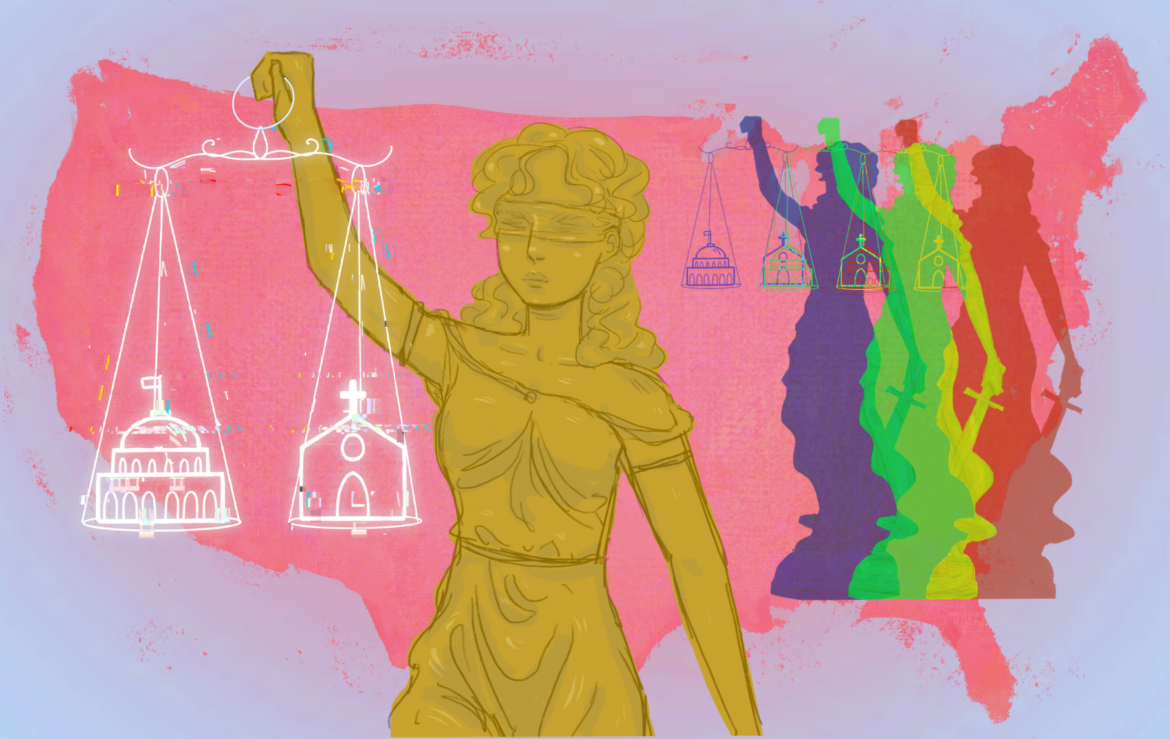Perhaps the politicians in Louisiana have not tuned in to the radio recently. If they did, they would see how young people are already familiar with three of the Ten Commandments, as cited in the hit pop song “Karma” by Jojo Siwa.
This past summer, Louisiana became the first state to mandate the presentation of the Ten Commandments in every public classroom. The law has constitutional hiccups, with separation of church and state going up against the argument of the commandments’ historical relevance.
While this drastic move has only been taken by one state, the governor’s belief that students need to be taught morals because they are lacking in them is universal.
There is no need to cite a particular study when these comments are tossed around on a day-to-day basis. We may even have found ourselves griping about the manners of younger generations, which indicates that we are already in the midst of “getting up there in age” if the back pains have not already set in.
The overarching question of whether religion is needed for morals is often debated and debunked as false and misleading. In a diverse place like America, a study from 2022 shows that we do not see religion as the only means of being moral.
Morals and ethics are used in the same context when we discuss the idea of “doing the right thing” but they differ in the level of application. You could consider morals the root of ethics. Morals, or your personal beliefs on what is right and wrong, influence what you regard as appropriate behavior and expectations for society, which is ethics.
A research project published in the British scientific magazine “Nature” gathered results by approaching people individually and asking what kind of social encounters they typically have. The scientists found that it was rare for respondents to express a consistent negative or “rude” pattern in their interactions.
Our perception almost always outweighs what reality is. We are coupled with the fact that we remember negative events more vividly than positive. This is a bias we have to reconcile with. This does not mean we have to dismiss our experiences entirely, but we should consider how we recall them.
A perceived decline in morals was found everywhere in the world but strangely enough, it was only American citizens who were insistent that their government take action. If you have noticed, this is also a strong topic candidates pull from their back pocket during speeches.
We expect our government to address all the issues of our country. Call it naiveté but when it comes to the social aspect of our lives, is that not something we just regulate among ourselves?
There is little allure in taking up responsibility, especially when we have historically pushed this issue to someone else. It will not get miraculously fixed with governmental involvement. But genuinely, if not absurdly enough, we may resort to this because we are OK having a reason to keep blaming someone else. In this case, it comes in the form of reiterating how “useless” the government is.
If that does not say something about how we actually value morals, I am not sure what does.
Regular, everyday people influence our country’s social behavior. We can harness those morals ourselves and encourage each other to evaluate them, which is what regulating them looks like.
As with everything in November, I am viewing this question through the electoral lens. With the particularly uncanny candidates in the past couple years, the presidential race begs the question of what is important in a leader. Nearly everyone concurs that having an ethical leader, in theory, is preferred.
Unlawful actions are illegal for a reason, yet ethics and legality are not necessarily fated to exist in harmony. Things that are contextually “legal” can be done in sly ways that are not in everyone’s best interest, which is a compromise of ethics. Does that justify the decision?
Some contend that you have got to occasionally bend your ethics to keep ahead and be the leading country in all respects, especially regarding militarism. America also promotes itself as being a just and upstanding society other countries should take heed of and mimic.
How can we do both at the same time and who determined it had to be that way?
Our representatives are pushing for us to possess and enact good values and I concur with them. This is undoubtedly a good thing for Americans and all of humanity to work toward.
Ironically enough, if there were more righteous people in our country, politicians may just find themselves out of a job.



